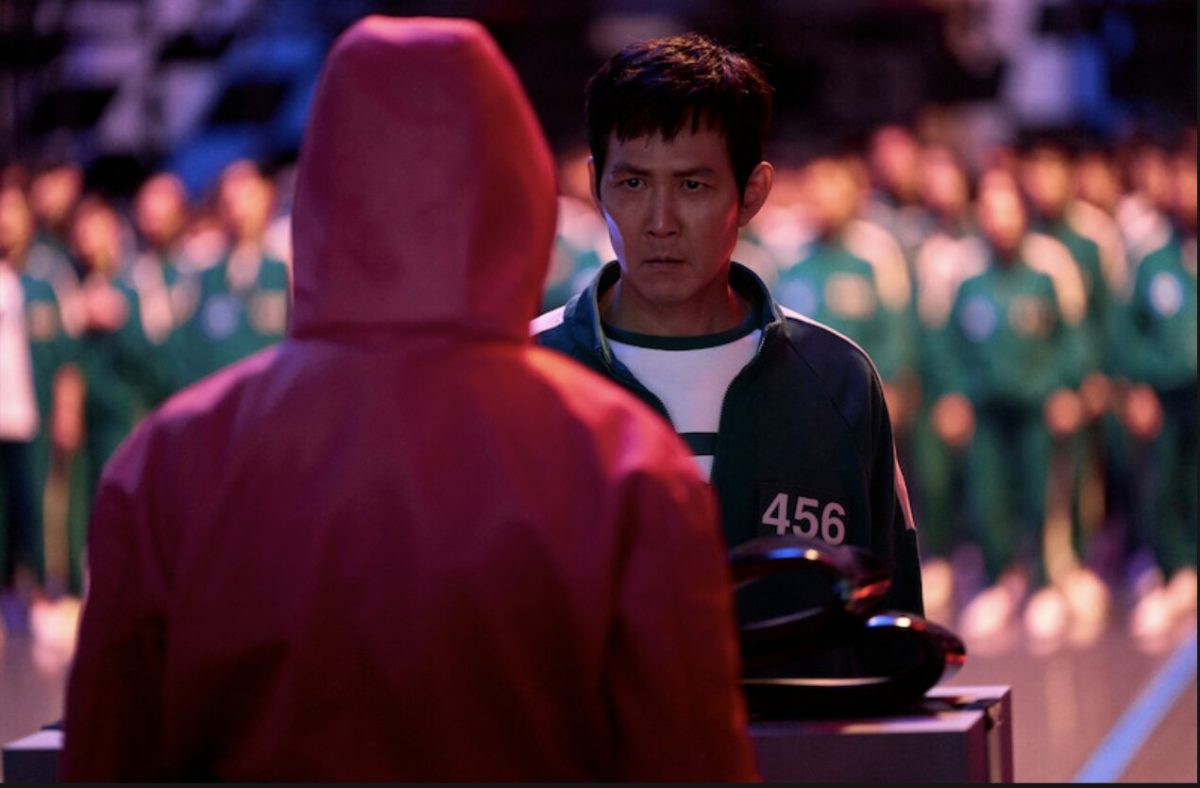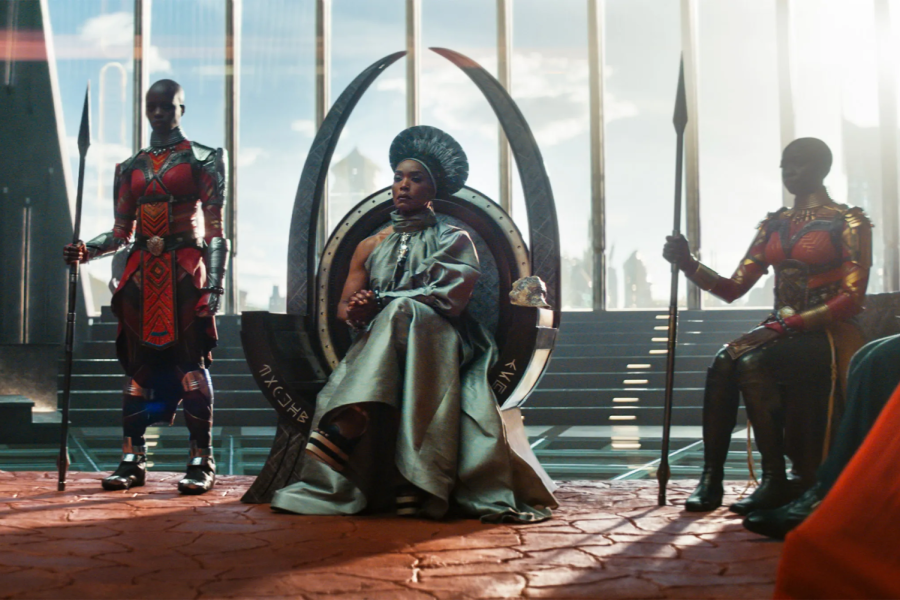‘Black Panther: Wakanda Forever’ honors Boseman, but tells a new story
Photo courtesy of Marvel Studios
Angela Bassett, playing Queen Ramonda, received a Golden Globe for her role in “Black Panther: Wakanda Forever.”
January 12, 2023
*this contains spoilers
“Black Panther: Wakanda Forever” commemorates Chadwick Boseman, the late star of the first Black Panther movie, through his grieving sister, but also retains the suspense and thrill that makes Marvel movies so special.
Chadwick Boseman, who played King T’Challa (Black Panther) was one of the most beloved figures in the Marvel Cinematic Universe before he tragically died in 2020 from stage four colon cancer. His performances in “Black Panther,” “Infinity War” and “Endgame” mesmerized me, and when I learned of his death, I remember being devastated and in disbelief.
This sequel manages to smoothly fit Boseman’s death into the script instead of recasting him. T’Challa’s death in the movie mirrored Boseman’s death in the real world — both suffered from sudden, fatal diseases. Letitia Wright, playing T’Challa’s younger sister Shuri, was key in carrying themes of grief and heartache throughout the movie. Her heart-stopping performance stirred up the real emotions I felt two years ago after Boseman’s death was announced.
As Wakanda tries to bounce back from the loss of their king and noble Black Panther, a new threat emerges: an unfamiliar underwater country known as Talokan. This ancient tribe, led by a powerful Aztec warrior, portrays a unique species with the help of advanced special effects and a talented makeup crew.
Both of the Black Panther films were created with the intention of advocating for Black power and increased Black representation. The films have an almost entirely Black cast and are led by MCU’s first Black director, Ryan Coogler. “Wakanda Forever” broadens that theme by discussing Spanish colonialism, showing how the Talokans suffered from European diseases and slavery in the 1600s.
In addition to its excellent cinematography and storytelling, this film is a box office hit, grossing $181 million in its first weekend in theaters — the second-most successful debut of 2022.
As electrifying as this film was, I wanted more scenes dedicated to Boseman and his character’s passing. Although the movie started out with King T’Challa’s heartbroken family grieving, that was about it. Soon after, the Wakandans became occupied with worldwide matters, which kept the movie climactic, but it felt like the writers disregarded Boseman’s death and just wanted another hit instead of a heartfelt tribute movie. The only time they formally addressed the actor’s death was after the post-credits scene.
In the end, this movie was almost nostalgic, reminding me of both the excitement I felt during the first “Black Panther” movie and the heartache I felt when Boseman died.










































